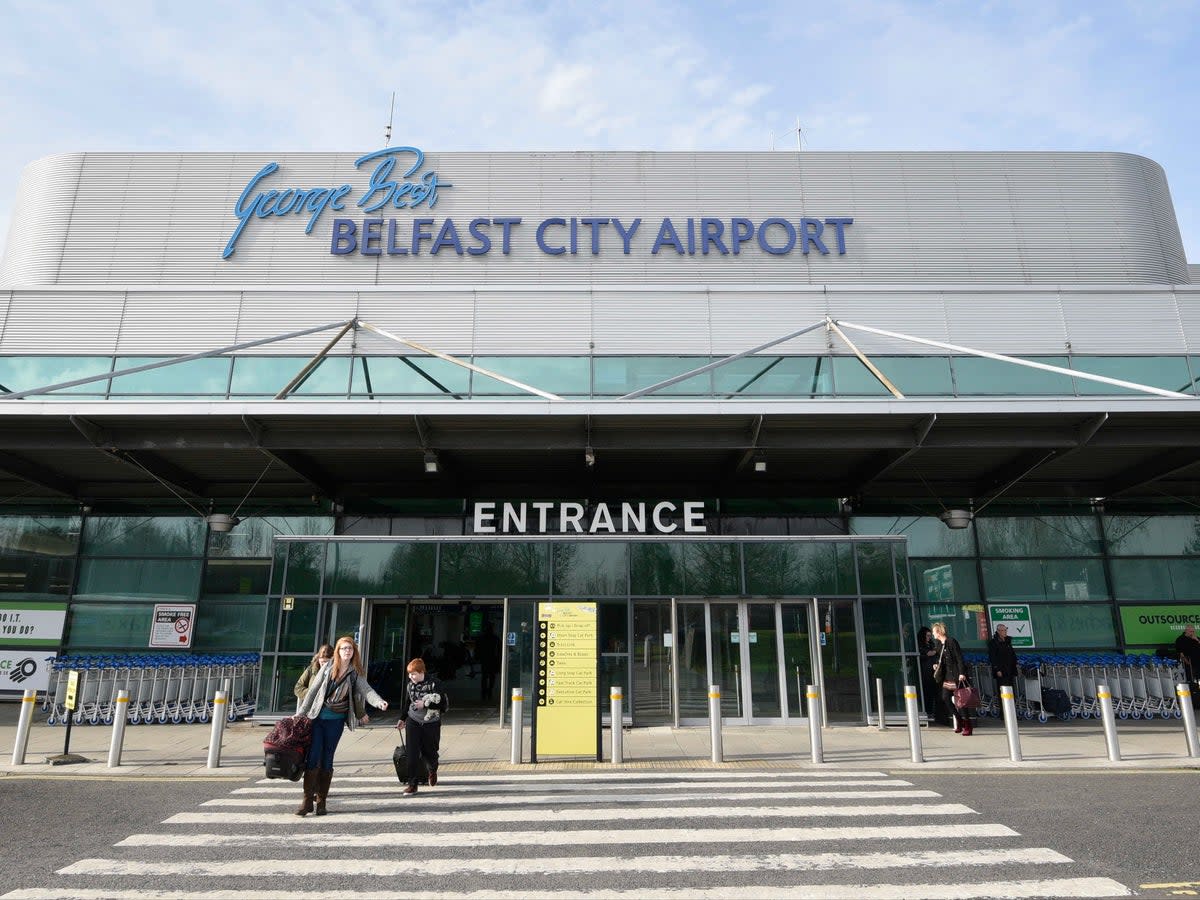Simon Calder: Do I need a passport to fly within the UK or to Ireland?

“Passports are needed even for domestic flights”, one comment on X read. Not true, but typical of other responses to the exclusive article in The Independent about Nigel Goddard’s trip from London to Belfast. His flight, along with many others, was cancelled on Sunday night.
The easyJet app recommended an alternative to Mr Goddard: flying from Gatwick to Malaga in southern Spain and north to Belfast. He was unable to take up the option (which included time for a beach break between flights) due to not having a passport. And that is what triggered the controversy.
The Civil Aviation Authority insists you will need a valid passport “for many domestic flights within the UK” – but this is simply incorrect.
British Airways correctly states: “You do not require a passport to travel within the UK.” But ID rules are complex, and for travel to Ireland you might need a passport.
These are the key rules – and policies – for your journey.
What are the rules for flying within the UK?
There is no legal requirement to carry identification, but in practice airlines demand ID from adult travellers.
British Airways requires photographic ID from passengers aged 16 and over (as well as 14- and 15-year-olds when flying solo). Examples include:
Valid passport
Valid driving licence, either provisional or full
Valid EU national identity card
Valid armed forces identity card
Valid police warrant card or badge
EasyJet has a similar list to British Airways but also accepts passports up to five years after expiry.
Ryanair is more generous, accepting “Any photo ID which matches the passenger’s name in the booking”. This could, for example, include a student card or bus pass.
Eastern Airways also accepts student cards and bus passes, as well as company IDs. But it insists under 16s have some form of identification, such as a birth certificate or NHS health record.
Loganair says: “Travellers do not require a passport when flying within the UK. Nevertheless, it would be best to always have photographic identification with you at the airport.”
Why are these policies so different?
They are simply measures put in place by airlines to prevent “tariff abuse” – passengers selling or giving away flights to other people. The practice used to be rife, and I am embarrassed to say that I once took a British Airways flight from Manchester to London with a ticket that named me as Mr Lawrence Hourahane.
Anything different when travelling between Great Britain and Northern Ireland?
Yes. You may be questioned by police at the airport under anti-terrorism laws.
More likely, though, is that you could inadvertently fall foul of the Brexit rules about the border in the Irish Sea. As Northern Ireland is part of the EU Single Market, there are restrictions on what you can take in. You can thank Boris Johnson for his great political triumph of getting Brexit done.
What about Ireland, the Channel Islands and the Isle of Man?
Thanks to agreements stretching back a century, British travellers can venture without a passport (subject to the airline’s policy) anywhere within the Common Travel Area (CTA). This comprises one EU nation – Ireland – as well as the “Crown Dependencies” of the Isle of Man and the Channel Islands.
The Common Travel Area is an open-borders agreement that predates such arrangements in Continental Europe. It has its origins in the border deals made in 1923 when formalising links between the newly created Irish Free State and the United Kingdom – comprising England, Scotland, Wales and Northern Ireland.
It now also embraces the Bailiwicks of Jersey and Guernsey (including the smaller Channel Islands) and the Isle of Man.
British and Irish citizens can “move freely between the UK and Ireland”. British citizens can work and take up residence in Ireland, and Irish citizens can do the same in the UK “without any requirement to obtain permission”. And citizens of each country “have the right to access emergency, routine and planned publicly funded health services in each other’s state, on the same basis as citizens of that state”.
As a British citizen, what do I need to travel within the Common Travel Area?
To Ireland from Great Britain (England, Wales, Scotland)
The Irish government says: “There is no requirement for Irish and British citizens to carry passports when travelling within the Common Travel Area.
“However, it is the case that airline carriers in many instances require all passengers to have a passport in their possession before allowing them to board aircraft. This is not an immigration requirement.”
Ryanair demands a passport for all travellers from Great Britain to Ireland.
British Airways says: “If you are a citizen of the UK or Republic of Ireland who was born in that country you do not need a passport to travel between the two countries but you do require some form of photographic identification, such as a driving licence. All other travellers require a valid passport to travel between the two countries.”
Aer Lingus says acceptable identification includes:
Valid passport or Irish passport card
Driver’s licence with photo
International student card
Government issued photo ID cards
Health insurance cards with photo/social security cards with photo
Bus pass with photo
Work ID with photo.
To the Isle of Man: no passport necessary.
To the Channel islands: no passport necessary, but “all visitors do require some form of photographic identification”.
For more travel news and advice listen to Simon Calder’s podcast.


